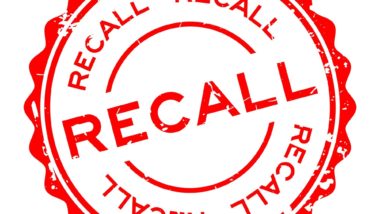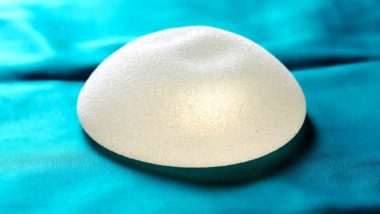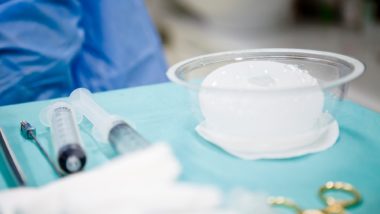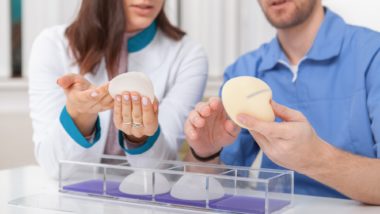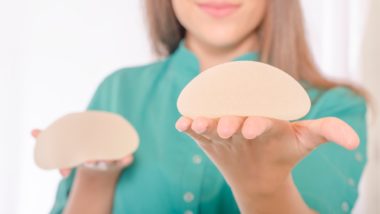Top Class Actions’s website and social media posts use affiliate links. If you make a purchase using such links, we may receive a commission, but it will not result in any additional charges to you. Please review our Affiliate Link Disclosure for more information.
Although breast augmentation is the most popular form of cosmetic surgery, breast implants themselves have been associated with numerous complications. Women who undergo breast augmentation or reconstruction risk having to undergo revision surgeries when the implants rupture or otherwise malfunction, as well as breast implant illnesses.
What Is the Most Serious Risk of Breast Implants?
One of the more common complications of breast implants is rupture. This affects both saline-filled as well as silicone implants.
Ruptures may be the result of a phenomenon known as capsular contracture. This is the result of a hardening of the tissue surrounding the breast implant, and can affect one or both. Essentially, the tissue tightens around the implant, putting pressure on the device, thus causing a leak. In the most serious cases, revision surgery is required to have the implants removed.
When a saline implant ruptures, one or both breasts may become deformed as the implant(s) deflates; the effects are quickly apparent. In the case of a silicone implant, the rupture may be unnoticeable for some time until the patient begins to experience unusual symptoms, such as hard lumps, breast pain or tenderness, tingling or other abnormal sensations.
What Are Other Complications?
Breast Implant Illness (BII) is one of the adverse events commonly reported by women who have had breast implants. The term refers to a collection of symptoms that include fatigue, joint pain and mental impairment. Medical researchers have yet to fully understand just how these symptoms occur or how they start. However, removal of the implants can sometimes reverse BII symptoms.

In October 2019, the FDA advised that textured breast implants come with a boxed warnings of their potential risks, particularly their possible association with BIA-ALCL.
This decision came in light of the 779 cases of BIA-ALCL and 33 deaths connected to the disease reported around the world, recorded in September 2019. These almost 800 cases were recorded since the 1980s, when textured breast implants were introduced into the market.
Happily, the risk of developing BIA-ALCL does seem to be rare. Whereas the risk of a woman developing breast cancer, whether or not she has implant, is one in eight, the risk of developing BIA-ALCL in association with textured breast implants is estimated to be between one in 1,000 and one in 30,000 women, depending on the data used, explains Terence M. Myckatyn MD, professor of surgery in the Division of Plastic and Reconstructive Surgery at Washington University School of Medicine in Saint Louis.
Though these numbers do present a less than clear picture of the actual risks associated with textured breast implants, they do illustrate that the risk of developing BIA-ALCL is seen to be much rarer than developing breast cancer in general.
Additionally, most breast implants used in the United States are smooth, so the rarity of use of textured implants decreases the possible danger to patients. According to Myckatyn, only 10 percent of breast implants used in the United States are textured, though up to 80 percent of the implants used in other parts of the world may be textured.
Are There Risks Involved in Pregnancy and Breast-Feeding?
So far, studies have failed to find any danger to the fetus of a woman who has undergone breast implant surgery. Although one investigation reported low birth weight, it is still not known whether or not breast implants were a factor.
Researchers have been unable to determine whether or not silicone from breast implants passes into the mother’s milk. The only study conducted into the question did not find elevated levels of silicone in the breast milk of women who had implants.
Are Manufacturers of Breast Implants Liable?
According to an article in the AMA Journal of Ethics, the first lawsuit over breast implants was filed in the early 1980s. The plaintiff claimed that her silicone implants caused her to develop an autoimmune disease; ultimately, the jury ordered the manufacturer, Dow Corning, to pay over $1.7 million in compensatory and punitive damages when it was found that Dow Corning, had long been aware of the danger of leakage.
Today, lawsuits are being filed over the textured breast implants that have been implicated in BIA-ALCL; manufacturers have begun taking them off the market after some countries have banned the devices.
Join a Free Breast Implants Side Effects Lawsuit Investigation
You may qualify for this breast implant investigation under the following circumstances:
- You were implanted with textured breast implants;
- You were diagnosed with Breast Implant-Associated Anaplastic Large Cell Lymphoma (BIA ALCL); and/or
- You’ve suffered from any illness you believe is related to the implants.
Fill out the form on this page for a free case evaluation by a breast implants injury attorney.
This article is not legal advice. It is presented
for informational purposes only.
ATTORNEY ADVERTISING
Top Class Actions is a Proud Member of the American Bar Association
LEGAL INFORMATION IS NOT LEGAL ADVICE
Top Class Actions Legal Statement
©2008 – 2024 Top Class Actions® LLC
Various Trademarks held by their respective owners
This website is not intended for viewing or usage by European Union citizens.
Get Help – It’s Free
Join a Free Breast Implants Side Effects Lawsuit Investigation
If you qualify, an attorney will contact you to discuss the details of your potential case at no charge to you.
PLEASE NOTE: If you want to participate in this investigation, it is imperative that you reply to the law firm if they call or email you. Failing to do so may result in you not getting signed up as a client or getting you dropped as a client.
E-mail any problems with this form to:
Questions@TopClassActions.com.



